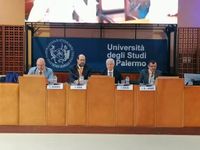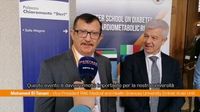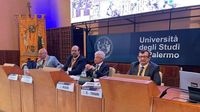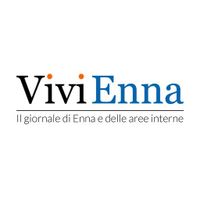Palermo is set to be the focal point of international cooperation in medical education as the University of Palermo hosts the Winter School on Diabetes and Cardiometabolic Risk. Kicking off on March 24, 2025, and running until April 4, 2025, this two-week program aims to enhance collaboration across academic institutions from different countries, specifically the Qatar University in Doha and the RAK Medical and Health Sciences University from the United Arab Emirates.
At the opening ceremony held at the Aula Magna of Palazzo Steri, Massimo Midiri, the Rector of the University of Palermo, emphasized the significance of this initiative. “This event is a manifestation of great impact on internationalization,” he said, underlining how the program creates meaningful exchanges between students and faculty. The Winter School will focus on pressing medical issues, particularly diabetes, obesity, and cardiovascular diseases, which are of great importance in today’s global health landscape.
In attendance was Mohamed El-Tanani, Vice-President of RAK Medical and Health Sciences University, who expressed his department's commitment to broadening horizons through this scholarly collaboration. “This event is really very important for our university. We have sent our students here to gain experience not only in academic and clinical fields but also culturally,” he noted, reflecting on the significance of such opportunities for Emirati students.
The participation of forty faculty and students from the two universities reflects a robust commitment to sharing knowledge and skills essential for medical advancements. The program is structured to include interactive sessions, workshops, and round tables designed to stimulate collaboration and idea exchange among participants, specifically focusing on prevention, diagnosis, and treatment strategies related to cardiometabolic diseases.
In terms of logistics, the Winter School will feature a variety of activities taking place in several facilities of the University of Palermo and the Policlinico, leveraging the expertise of a multitude of professors and researchers dedicated to this important field of health science.
Professor Manfredi Rizzo, coordinator of the event, explained that the aim of the Winter School is to foster the sharing of knowledge at the highest scientific level. He remarked, “Professors and students from two important universities can update themselves and engage with experts in the field, discovering the excellences of our university and the city.”
The importance of this initiative also resonates politically and diplomatically, with Italian ambassadors from the UAE and Qatar participating via video conference. Lorenzo Fanara, who graduated from Palermo 32 years ago, expressed pride in the role of the university in fostering international relationships. “Our students in Palermo help to strengthen this cooperation,” he stated, highlighting the historical ties and future potential for collaboration in research between Italy and these two Arab nations.
Massimo Midiri further emphasized that this project holds promise for enhancing international relations and opportunities for both the University of Palermo and its foreign academic partners. He pointed out how significant private funding could accompany educational partnerships, potentially stimulating growth in technology and increasing opportunities for students from Palermo to study and engage in exchanges abroad.
Officials at Qatar University expressed optimism about their involvement in initiatives like the Winter School. Michail Nomikos, Head of Research and Graduate Studies at Qatar University, articulated gratitude for the opportunity to participate, stating, “We are really pleased to participate in this initiative. I believe our students will greatly benefit, and I hope this marks the beginning of a long-term collaboration between our universities.” Such sentiments underline the mutual benefits derived from these efforts and echo the vision for sustained educational dialogue.
Overall, the Winter School is more than just a gathering of minds; it is a bridge connecting cultures and reinforcing cooperative efforts among esteemed educational institutions. With focused curricula addressing global health issues faced by many communities, this two weeks is an invaluable opportunity for all involved. As it unfolds, participants will undoubtedly walk away not only with enhanced knowledge but also with strengthened ties that could pave the way for future innovations in healthcare.




